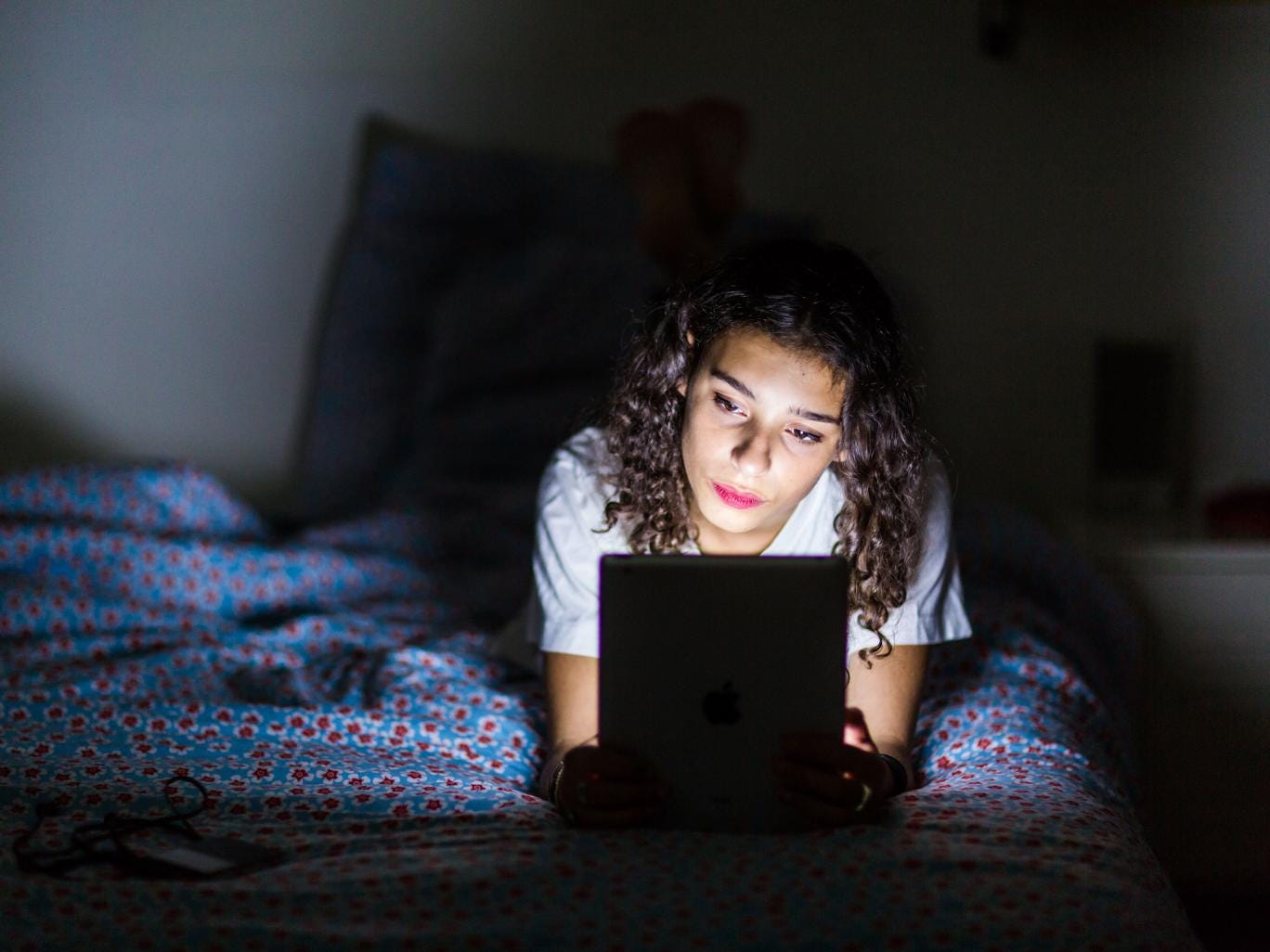Teens Need Sleep
A Librarian Mom never sleeps:
As the mom of teenagers, I work very hard to make sure that my teens are healthy. I organize healthy meals, make certain that my kids have exercise, and of course I want them to get a good night’s sleep. As a librarian, I see the research about adolescents and their need for additional sleep. Research studies from UCLA, University of British Columbia, and The National Sleep Foundation, point out that puberty and the onset of puberty shifts the timing of a teens' circadian rhythms and that makes it hard for them to fall asleep before 10 pm. Knowing all of this sent me on another research journey to find a solution, so that my teens get enough sleep. Some articles suggest that the answer is simple, "start school later." However, corporate business schedules within a community often drive school schedules, so recommending that we start school at 9 or 10 am is somewhat unrealistic. Focusing on the things that we can change is the key. Based on research and personal trial and error, the solutions for my family have been in routines and rituals.
 |
| Too much exposure to smartphone screens ruins your sleep, study shows |
Some nighttime rituals/routines to consider
- Lower the lights throughout the house
- A light snack
- No caffeine after dinner
- Give the devices a bedtime [30 minutes to an hour before the teens bedtime]
- Charge the devices in another room [not the bedroom]
- Layout clothing for the next day
- Have prayers or meditations
See these articles about teens and sleep:
"Teens in the U.S. have been found to be chronically sleep-deprived and pathologically sleepy. A National Sleep Foundation poll found 59 percent of 6-8th graders and 87 percent of high school students in the U.S. were getting less than the recommended 8 1/2 to 9 1/2 hours of sleep on school nights."
Hard Lesson in Sleep for Teenagers By Jane E. Brody
"Adding to the adolescent shift in circadian rhythm are myriad electronic distractions that cut further into sleep time, like smartphones, iPods, computers and televisions. A stream of text messages, tweets, and postings on Facebook and Instagram keep many awake long into the night. Just the light from a screen can suppress melatonin, the hormone in the brain that signals sleep."
Understanding the Zombie Teen's Body Clock - by Sue Shellenbarger
"One 2010 study from the University of British Columbia, for example, found that sleep loss can hamper neuron growth in the brain during adolescence, a critical period for cognitive development."
Sleep Rituals: Training The Body And The Mind - by Dr. Michael J. Breus Clinical Psychologist; Board Certified Sleep Specialist
"These days, it's far too easy to push bedtime aside with countless distractions, including those from the television, computer, telephone ... But sleep is not a luxury that you can push aside or save for later. Sleep is critical."
"One change in the body during puberty is closely related to how you sleep. There is a shift in the timing of your circadian rhythms. Before puberty, your body makes you sleepy around 8:00 or 9:00 pm. When puberty begins, this rhythm shifts a couple hours later. Now, your body tells you to go to sleep around 10:00 or 11:00 pm. The natural shift in a teen's circadian rhythms is called "sleep phase delay." The need to sleep is delayed for about two hours. At first, teens may appear to be suffering from insomnia. They will have a hard time falling asleep at the usual time. While they begin going to sleep later, they still need an average of nine hours of sleep at night. Because most teens have to wake up early for school, it is important for them to go to bed on time."
See New Study from 2017
https://www.ncbi.nlm.nih.gov/pubmed/28504422Effects of Mobile Phones on Children's and Adolescents' Health: A Commentary
CBS News contributor Lisa Damour joins "CBS This Morning"
| A new study in the journal Child Development shows nighttime usage of a cell phone can increase anxiety and depression in teenagers and reduce self-esteem. This is the first study that shows a direct link between screen time and mental health. Psychologist and CBS News contributor Lisa Damour joins "CBS This Morning" to discuss tips for parents who want to decrease their teens' cell phone usage and how screen time affects important sleep habits.
